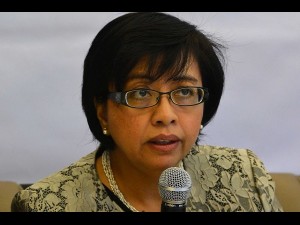MANILA, Philippines – The Philippine government and the Moro Islamic Liberation Front (MILF) said Sunday they hoped to sign within weeks a final peace deal to end decades of deadly insurgency after clearing the last hurdle in 18 years of negotiations.
A “comprehensive agreement” with the MILF should be signed in February or March, Manila’s chief negotiator Miriam Coronel-Ferrer told AFP, following a breakthrough announced on Saturday.
“We have just been discussing the next steps and our goal is to be able to get a good schedule for that,” she said from the Malaysian capital Kuala Lumpur where the last round of talks was held.
“We have set a time frame of between February and March,” she added.
The talks that began in 1996 with the 12,000-strong MILF are aimed at ending an insurgency in the country’s south that has left an estimated 150,000 people dead since the 1970s.
On Saturday, both sides agreed on a “normalization” deal detailing how the rebels will hand over their weapons and the creation of a security force to police what will be a self-ruled Muslim region.
Both sides had previously signed deals on power-sharing, taxation and governance, but the last agreement was more sensitive because the MILF had repeatedly warned it would not lay down its arms unless other threat groups in the south were disarmed.
After the final deal is signed, President Benigno Aquino is expected to sign a “basic law” for the creation of a new autonomous region for the Muslims.
This would then be passed to Congress, and subjected to a referendum, with Aquino hoping to have it completed by the time he ends his six-year term in 2016.
Long years of insurgency have left much of the southern region of Mindanao volatile, with a proliferation of unlicensed firearms in the hands of other armed groups, including Al Qaeda-linked militants and offshoots that are opposed to the talks.
But Ferrer said that to thwart any possible armed challenges, a joint security group composed of MILF fighters and government forces would be tasked to patrol the areas to be covered during the transition phase.
“There will always be contrarians, but as far as the partnership between the MILF and the government is concerned, we have mechanisms that will allow us to address peace and order concerns more effectively,” Ferrer said.
She did not specify any group, but the toughest challenge to the peace deal came in September, when hundreds of supporters of rebel leader Nur Misuari laid siege to a key southern port city, leaving more than 240 dead in three weeks of fighting.
Misuari, who remains at large, founded the Moro National Liberation Front (MNLF), from which the MILF splintered in the late 1970s.
MILF vice chairman for political affairs, Ghazali Jaafar, told AFP Sunday that the rebels were “ecstatic” over the new development but said much work remained to be done.
“The next step is that we will have to talk about the final wording of the comprehensive compact agreement,” he said. “Meantime, a transitional commission will have to start drafting the basic law to be sent to Congress.”
He said he believed a final deal would be in place “soon” but that some members of Congress in the mainly Catholic country may oppose the agreement.
Ferrer however said the peace process was “on track” to meet Aquino’s deadline.
“We believe the majority of our people and our decision- and opinion-makers are on our side,” she said.
The United States, Japan and the European Union were also upbeat about the breakthrough, calling it a historic moment that could finally bring peace to the region.
“This agreement offers the promise of peace, security, and economic prosperity now and for future generations in Mindanao,” US Secretary of State John Kerry said in a statement.
